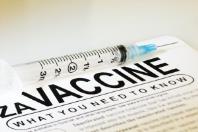|
|
Leah Durant | Vaccine Attorney - Vaccine Blog
Monday, December 28, 2020
 The annual flu shot: Is it worth it? While federal, state and local health authorities recommend that most people get a flu shot each year, it has also been widely publicized that the flu shot’s vaccine effectiveness (VE) rating has not been particularly high in recent years. After peaking at 60 percent effectiveness during the 2010-2011 flu season, the flu shot’s VE rating dropped to just 19 percent four years later, and it has not been above 50 percent since the 2013-2014 season. Read more . . .
Tuesday, December 22, 2020
 In comparison to the number of vaccines administered in the United States each year, the number of vaccine injuries is extremely small. However, vaccine injuries do occur; and, if you believe that your medical condition may be the result of an adverse reaction or a vaccination error, it will be important for you to seek help promptly. Not only do you need to seek treatment, but you will need to speak with a vaccine attorney about securing payment under the National Vaccine Injury Compensation Program (VICP) as well. Read more . . .
Friday, October 30, 2020
 It’s flu season, and while Americans anxiously await the arrival of a safe and effective COVID-19 vaccine, it is important not to forget about the annual flu shot. According to data from the U.S. Centers for Disease Control and Prevention (CDC), the flu shot Read more . . .
Wednesday, October 28, 2020
 After being diagnosed with a vaccine injury, hiring an attorney to help you secure just compensation is an important part of the recovery process. When you hire an attorney, one of the first steps he or she will take will be to determine if you are eligible to file a claim under the National Vaccine Injury Compensation Program (VICP). The VICP is a federal program that provides compensation to injured vaccine recipients without requiring proof of fault; and, in addition to providing coverage for medical expenses, lost wages, and pain and suffering, it also pays claimants’ legal fees separately from their compensation awards. 3 Basic Criteria for Filing a Claim Under the VICPWhile your attorney can assess your VICP eligibility for you, there are also some preliminary steps you can take in order to determine if you may be eligible to file a claim. There are three basic criteria for filing a claim under the VICP: Eligible person Eligible vaccine injury Meeting the deadline
1.Read more . . .
Monday, October 26, 2020
 As the entire world anxiously awaits the arrival of a safe and effective vaccine for COVID-19, flu season is now upon us as well, and that means it is time to start thinking about the annual flu shot. The U.S. Read more . . .
Monday, October 19, 2020
 According to the September 1, 2020 Data & Statistics report from the U.S. Read more . . .
Monday, July 27, 2020
 In the United States, there are two federal agencies that share primary responsibility for ensuring that vaccines are safe for the public. These are the Centers for Disease Control and Prevention (CDC) and the U.S. Food and Drug Administration (FDA). While the CDC provides vaccine recommendations and general oversight with regard to vaccine safety, the FDA is responsible for determining whether individual vaccines should be authorized for use in the United States at all. Read more . . .
Monday, July 13, 2020
 If you are planning to travel abroad, you may need to get a vaccine before you go. The Centers for Disease Control and Prevention (CDC) recommend various vaccines for individuals who are traveling to overseas destinations, and these vaccines can provide critical protection against diseases that do not present a threat in the United States. The CDC maintains an online database of recommended travel vaccines, and you can search the CDC’s travel vaccine database based on the country (or countries) to which you are planning to travel. Read more . . .
Wednesday, July 8, 2020
 For individuals who are allergic to gelatin or egg protein, getting immunized with certain vaccines can carry the risk of anaphylaxis. Anaphylaxis is a severe allergic (or “hypersensitivity”) reaction; and, while it is rare overall, it presents a significant concern for individuals who have these allergies. As a result, prior to getting vaccinated, individuals who have gelatin or egg protein allergies should consult with their physicians to determine whether it is safe to do so. Which Vaccines Contain Gelatin?Gelatin is used as a preservative in various vaccine formulations. For example, gelatin may be present in vaccines including (but not limited to) those used to prevent: Diphtheria, tetanus and pertussis (DTaP) Influenza (nasal spray formulations) Measles, mumps and rubella (MMR) and the separate vaccinations for each of these diseases Rabies Singles Varicella (chickenpox)
Which Vaccines Contain Egg Protein?Egg protein is used in the production of certain vaccines. Read more . . .
Friday, June 12, 2020
 The measles, mumps and rubella (MMR) vaccine is one of the standard childhood vaccinations recommended by the U.S. Centers for Disease Control and Prevention (CDC). The CDC also recommends MMR vaccination for adults who have not previously been vaccinated. Like all CDC-recommended vaccines, the MMR vaccine is generally safe for most people. Read more . . .
Wednesday, June 10, 2020
 When getting vaccinated, it is important to be aware of both the side effects of the particular vaccine as well as the signs of related vaccine illnesses and injuries. As the Centers for Disease Control and Prevention (CDC) explain, “Usually vaccine side effects are minor . Read more . . .
← Back
|
|
|
|